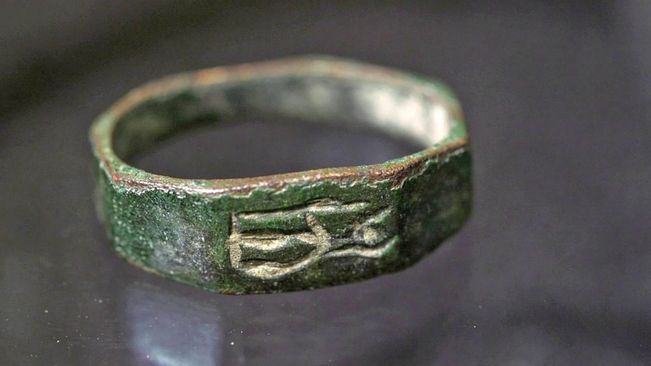"While hiking I noticed a small green item and picked it up. It was corroded, and at first, I thought it was just a rusty bolt. I thought about heating it, but then fortunately I understood it was a ring. At home, I saw it had an image on it. At first glance, I thought it was a warrior," said Yair Whiteson, of Haifa.
The ring, preserved in its entirety, features the image of a helmeted naked figure holding a shield in one hand and a spear in the other.
Yair, accompanied by his father, who had just returned from a four-month stint in the army reserves, was passing through Khirbet Shalala, an area known for its remains of a Roman farmstead and a nearby ancient rock quarry. Yair's curiosity was piqued by a small, green item lying on the ground. "I'm curious about fossils and rocks and love to collect them," Yair explained, adding that it became apparent that this was not a fossil.
Recognizing the potential value of the ring, the family contacted the Antiquities Authority.
Dr. Eitan Klein and Nir Distelfeld of the Antiquities Authority identified the figure as Minerva from Roman mythology, also known as Athena in Greek mythology.
"Yair's identification of the figure as a warrior is very close to reality," they explained. "This goddess, who was very popular during the Roman period in the Land of Israel, was considered, among other things, as the goddess of war and military strategy, and also as the goddess of wisdom."
The researchers dated the ring back to the Late Roman Period, the 2nd-3rd Century CE.
Khirbet Shalala also features burial caves at the edge of the quarry, raising speculation about the ring's origins.
"The ring may have belonged to a woman who lived on this farm. Or, it might have fallen from a quarry worker, or it may have been a burial offering from these nearby graves. There are many possibilities," the researchers noted.
The ring will be displayed in Jerusalem.
(ANI)
Read more: International news















